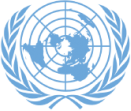Mr. Chairman (HE Mr. Damcho Dorji, Minister for Foreign Affairs of Bhutan)
Hon’ble Ministers,
Under-Secretary-General and High Representative for LDCs, LLDCs and SIDS, Ambassador Acharya
Distinguished Delegates.
It is indeed my privilege to participate in this important meeting.
Let me first express my deep appreciation to the Republic of Zambia for providing a dynamic leadership as the chair of the Group of Landlocked Developing Countries, and the members of the Bureau for their excellent work, especially during the 70th year processes of the UN.
I also congratulate Zambia for their re-election as Chair of the Group for the next term.
I wish to place on record our appreciation for the personal as well as institutional support that the United Nations Secretary-General Mr. Ban Ki-moon has provided to the LLDC Group. I also thank Ambassador Gyan Chandra Acharya, High Representative for LDCs, LLDCs and SIDS and members of his untiring team for their invaluable support and contribution to the cause of the LLDCs. The UN system has always been an important institutional support mechanism to the LLDCs. In this connection, we also acknowledge the important work of UNCTAD.
Nepal has placed high importance to this meeting as it takes place after the adoption of landmark 2030 Agenda last year. I should particularly emphasize that the Vienna Programme of Action (VPOA) adopted in December 2014 should be implemented effectively in full synergy and perfect coherence with the Sendai Framework on Disaster Risk Reduction, the Addis Ababa Action Agenda for Financing for Development, the 2030 Agenda for Sustainable Development and the Paris Agreement on Climate Change.
It is important to note that the VPOA outlines the constraints facing the LLDCs, their special needs and concerns, as well as the actions required to address them. The theme of this Meeting- “Harnessing coherence in the implementation of the 2030 Agenda for Sustainable Development and the Vienna Programme of Action”- has rightly captured this important aspect.
Mr. Chairman,
The LLDCs are a special category of countries that are in need of global attention and support. The development cost in these countries is at least 20 per cent higher than the in transit and other countries. This is affirmed by the fact that more than 50 per cent of LLDCs are also Least Developed Countries (LDCs). These countries need special support in their efforts to achieving sustainable development including through transit and trade facilitation and enhanced international support measures. While Nepal is grateful to its immediate transit neighbours, India and China and also Bangladesh, for their understanding, goodwill and support throughout, Nepal maintains that freedom of transit should not be constrained under any circumstances or pretext to disrupt the flow of goods and services which must be fully and unconditionally adhered to by all transit countries.
There exists a huge infrastructure gap between the LLDCs and their transit countries. Development and maintenance of transport infrastructures linking the LLDCs with the transit countries are always important for them to participate in and benefit from the opportunities available at global level. It is also important that LLDCs require an enhanced level of foreign direct investment for infrastructure development. We should continue to encourage trans-national companies to invest in LLDCs in the areas of infrastructure and productive sectors. Cooperation of the transit countries, support of development partners and partnership of proactive private sector can critically enhance the much needed capacity of the LLDCs.
Mr. Chairman,
Nepal has begun mainstreaming the 2030 Agenda, like the VPOA before, into its national plans and programmes. The current development plan that started in July this year accords high priority to infrastructure development and connectivity. This is also factored in while rebuilding infrastructures following the devastating earthquakes last year. We are confident that the international community will be forthcoming while implementing these important plans. As an active member of various regional forums, Nepal endeavors to utilize these forums to enhance bilateral, sub-regional and regional cooperation in facilitating transit and transport.
Let me conclude, Mr. Chairman, by stressing one important point. Almost a year has gone by talking about the effective implementation of SDGs starting 01 January 2016. Implementation of the VPOA was not very different in terms of the time lag. Countries like LLDCs and LDCs will have to pay a heavy price due to this loss of time, like in the case of implementation of the MDGs 15 years ago. To ensure that no one is left behind, full, timely and effective implementation of the VPOA is a must in full synergy and coherence with the 2030 Agenda without any further delay. Nepal is committed to do all it can, to that end, both at home and beyond.
I thank you.


